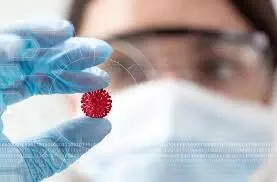
Vaccines unlikely to be effective in stopping COVID in homes: Study
text_fieldsFully vaccinated people are just as likely to spread Covid-19 to their live-in companions once they are infected. Households are best suited for transmission of Covid infections due to daily contact for longer hours.
A new study has revealed that vaccination does not fully eliminate the risk of catching the coronavirus and passing it on. The true proportion of household contacts who get infected from the initial case and the duration of their infection is not clear. The research hasn't clarified how much the vaccination lowers the risk of transmission, reported The Guardian.
The report emphasised that vaccination is still crucial in preventing severe cases of Covid-19 and related deaths. A team of researchers from a number of colleges in the UK analysed data from 204 households and 138 people infected by the Delta variant.
Findings suggest that a fully vaccinated person has a 25% chance of catching the virus from an infected person living with them. For an unvaccinated person, this risk goes up to 38%. However, the vaccination status of the first infected person in the house makes little to no difference in how they spread the virus.
Prof Ajit Lalvani, chair of infectious diseases at Imperial College London, told The Guardian that the team found that the risk of getting infected was higher three months after the second dose of the vaccine. "Vaccine-induced protection is already waning by about three months post-secondary." He stressed the importance of boosters.
The study is published in the Lancet.
























